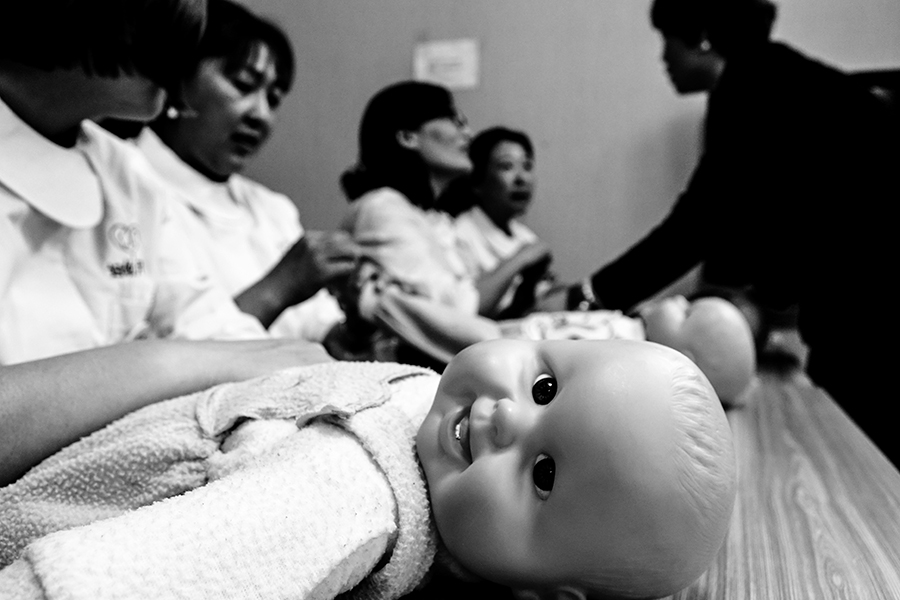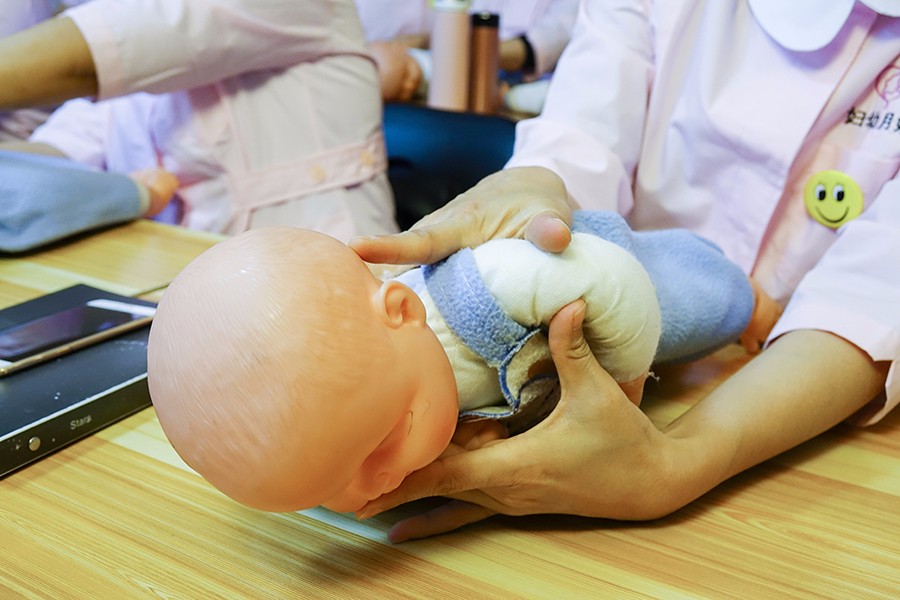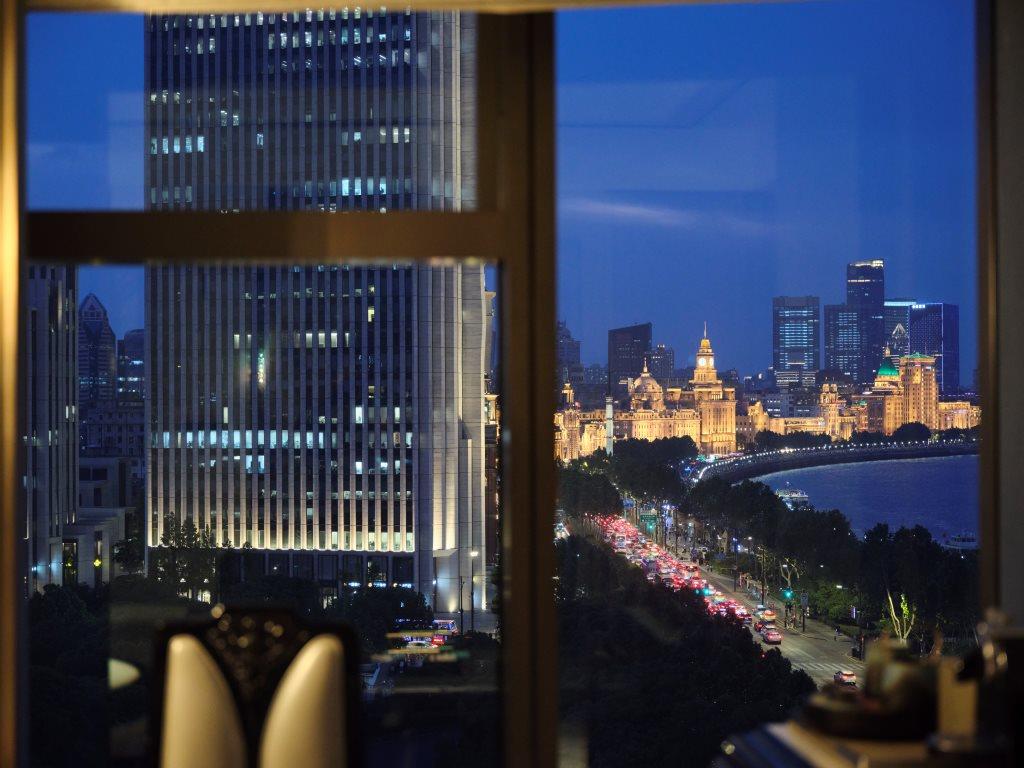How would you feel about having a stranger live in your home after your child is born, 24 hours a day, seven days a week? For a growing number of Chinese couples, this is exactly what the doctor ordered.
Ding Qiong has just finished 42 days working as a yuesao, or maternity matron, for one such couple. It’s her job to take care of mothers and their babies in the days and nights after the birth, often for a month or more.
“During that first week, I feel more stressed than the parents,” Ding says. “Dangerous things can happen to babies at any time. And whenever the baby cries, wants to eat, needs its diaper changed or simply wakes up, I wake up too. I sleep for less than five hours a night when I’m working.”
Ding says that people are surprised to hear she makes RMB13,000 a month – more than many college graduates. But it’s not an easy job, she says. The hours are long, and Ding will live with her clients over the course of a month or two, taking responsibility for changing diapers, cleaning the baby, offering emotional support and making up to six meals a day.

There were 17.5 million babies born in China in 2015, according to the National Bureau of Statistics. And a reported one-third of families with newborns will buy home nursing services, leading to growing salaries in the industry. Ding now earns more than four times what she did when starting out as a yuesao in 2007.
Ding says that her age and experience of giving birth are seen as positives by potential customers.
“The clients think I’m more trustworthy and patient, as I’m in my mid-forties,” she says. “I’ve raised children myself, so I have more sympathy for the mothers and their babies.”
The 43-year-old is one of around 500 yuesao contracted by Fuyou Nurse, a Beijing maternity agency. The firm’s website lists all of its available matrons alongside introductory video clips, many of which show them performing massages on lifelike baby dolls.
Demand for Fuyou Nurse’s services has grown dramatically in recent years, says CEO Zhang Zheng.
“Most Chinese families now only have one child, or two at the most, so they want to provide them with the best of everything,” Zhang says, “which includes services from the moment they are born. Parents want a yuesao service because they believe in taking a scientific approach to caring for mother and baby in that first, most important month, rather than the old superstitious approach.”
Demand for maternity care stems from the tradition of zuoyuezi – literally ‘sitting the month.’ Traditional Chinese medicine teaches that, for a month after a child’s birth, mothers should avoid any activity that might cause coldness or tiredness. Some of the recommendations appear sensible, such as avoiding heavy lifting, but others have no obvious benefit. New mothers are often instructed to resist brushing their teeth, showering, drinking cold water or opening the windows.
While zuoyuezi is still widely practiced, the more extreme rules are often ignored. But it still appeals to today’s young mothers, says Chang Yaohua, professor of Chinese culture and literature at Beijing International Studies University.
“You can’t say that [these restrictions] are all wrong,” he says. “In ancient times, mothers’ environments were not as good as they are today, so women who’d just had babies needed to be careful. But of course traditions should be updated as conditions change.”

Chang argues that the the practice arises from discrimination against females – as well as an old superstitious belief that when women bleed, it brings bad luck. Forcing new moms to stay at home was thought to keep inauspicious forces at bay.
Regardless of women’s motivations for partaking in zuoyuezi, the tradition has created a huge market for maternity services. And as a growing number of young Chinese couples move to cities – away from their hometowns and family support networks – the need for yuesao services has grown in turn.
According to Fuyou Nurse’s Zhang, the end of the one-child policy has also contributed to the industry’s recent surge.
“Many women who were born in the 1970s feel that they have one last chance to have another baby, so in 2016 we have seen more need for yuesao,” he says. “And this has continued into 2017, with most of our matrons’ schedules full until July.”
The industry remains lightly regulated. Guidelines published last year say that yuesao should be aged between 18 and 55, undertake regular training and possess at least a middle school diploma, though these are not legal requirements.
To obtain a certificate from China’s Ministry of Health, matrons must partake in a 10-day training course, culminating in a nursing exam. But Zhang says that the examination is easy to pass and that “working experience” matters more.
“I think the industry has grown wild,” claims Yu Jiangbei, a new father who recently paid RMB16,000 for a 26-day yuesao service. Yu says that he conducted a lot of research online, but still found it difficult to choose a suitable matron. He reached out to a dozen companies, interviewing several candidates before making a decision. But while Yu still feels stressed, he says that the decision to hire help paid off.
“[People like me] want a better way to take care of our babies. If my mother was to help during the zuoyuezi, I worry that there would be arguments over the best way to do things. Hiring a yuesao avoids these conflicts.”
Images by Victor Liu






















0 User Comments